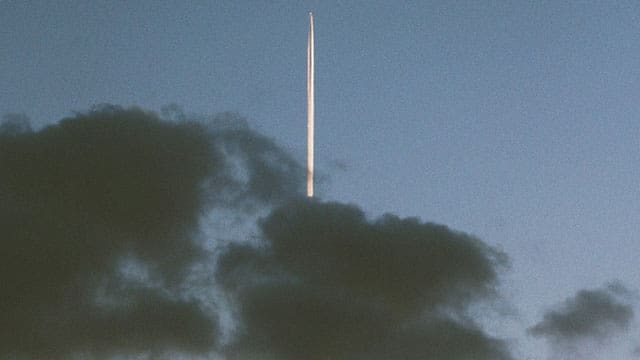Israel would run into the same kind of challenges dealing with Iran as it does with Hamas: scant support from “allies” and international bodies
 There’s been an assumption for several months that the Israel-Hamas war would lead to other conflicts in the region. Some believed that either Hezbollah or Yemen’s Houthi movement would make this move. There have only been limited attacks from both sides to date.
There’s been an assumption for several months that the Israel-Hamas war would lead to other conflicts in the region. Some believed that either Hezbollah or Yemen’s Houthi movement would make this move. There have only been limited attacks from both sides to date.
As it turned out, the biggest conflict has involved Iran.
On Apr. 1, Israel bombed the Iranian consulate located in Damascus, Syria. Sixteen people were killed, including Brigadier General Mohammad Reza Zahedi and his deputy, General Haji Rahimi. The reasons for this attack were multifold. Iran’s financial and military support for Hezbollah was undoubtedly a factor.
According to the Guardian’s Patrick Wintour, Zahedi “would have been a critical figure in Tehran’s relationship with Hezbollah and Syria’s president, Bashar al-Assad,” “would have been at the heart of the supply of Iranian-made missiles to Hezbollah” and “had sanctions imposed on him by the U.S. as long ago as 2010.”
In retaliation, Iran and its proxies – including the Houthis, Islamic Resistance in Iraq and an unidentified group based in Syria – launched a large-scale attack against Israel with about 300 drones and multiple ballistic missiles. Israel stopped about 99 percent of them, according to the IDF, with allies like the U.S., Britain and Jordan intercepting over 100 drones. While the attacks damaged a couple of airbases and injured 33 people, no one was killed.
Will Israel launch a counterattack? That remains to be seen.
The Israeli War Cabinet is divided on this issue, although many support a counter-offensive in principle. U.S. President Joe Biden reportedly told Israeli Prime Minister Benjamin Netanyahu that his country wouldn’t participate in any retaliation against Iran. And while there are many countries, including in the Arab World, that despise the Islamic Republic that has governed Iran since 1979, it’s hard to say whether they would take up arms and join Israel.
The latter point is something Israel has had to face against the bloodthirsty terrorist organization Hamas, too. Israel has dominated this war from the very start. It’s reclaimed most of northern Gaza, bombed large sections of Hamas-dominated communities, has had far fewer casualties – and will be initiating an offensive in the city of Rafah after several delays.
Why hasn’t the fighting ended, then? International opinion isn’t on Israel’s side, and many Western allies have either advised or warned them about increasing its military might in the Gaza Strip.
While it would be easier (in theory) for Israel to rally international support against Iran, the same roadblocks they faced with the war against Hamas could come into play.
There’s also an important distinction that needs to be made between the vast majority of Iranians who support Western values, democracy, freedom and peace with Israel versus the smaller group of hardline supporters of the Islamic Republic and Iran’s Mullahs. Meanwhile, Iranian monarchists who back Reza Pahlavi, the son of the last Shah of Iran, Mohammad Reza Pahlavi, have become active in pro-Israel rallies as of late.
When you put it all together, Israel’s case for a counter-offensive against Iran is difficult to build. It may be easier to establish a targeted approach that Western democracies and Arab nations could support.
Here’s one possibility. National Post columnist and deputy comment editor Jesse Kline suggested Israel and the U.S. should combine forces to eliminate Iran’s nuclear program. “Rather than allowing the Iranian threat to continue to fester,” he wrote on Apr. 14, “Biden should see this as an opportunity to do what his predecessor, President George W. Bush, should have done 20 years ago, and deal a fatal blow to Tehran’s nuclear ambitions.”
What would be the benefit? “A nuclear-armed Iran would threaten global peace and security, along with the very existence of the Jewish state,” Kline wrote. “Joint Israeli and American strikes against Iran’s nuclear program could eliminate this threat, deal a decisive blow to a regime that has mired the Middle East in war for the past six months and provide a strong counterpoint to Donald Trump’s accusations that Biden is weak.”
I completely agree with this tactic.
When Israel successfully bombed Iraq’s Osirak nuclear reactor on Jun. 6, 1981, it was a massive blow to its tyrannical leader, Saddam Hussein. It ensured his country wouldn’t be able to enrich uranium and build more nuclear bombs and other weapons of destruction to threaten Israel and Western democracies. (As an aside, the country that first attempted to destroy the reactor was Iran, which was in the midst of a war with Saddam’s Iraq.)
Going after Iran’s nuclear program would be a formidable task. While the Iranians have been studying the issue since the 1950s, and their technologies have likely advanced over the years, the full extent of its nuclear capacity is unclear. What is known is that several research sites have been built, two uranium mines have been detected, and three uranium enrichment plants have been confirmed, among other things.
While Netanyahu and Israel would obviously like to punish Iran’s Islamic Republic in various ways for its recent attack, this would be the ideal form of retaliation. If you propose obliterating its nuclear program, western allies like the U.S. would be onside – and Iran and its proxies wouldn’t be a significant threat to Israel and others for the foreseeable future.
Michael Taube, a Troy Media syndicated columnist and Washington Times contributor, was a speechwriter for former Prime Minister Stephen Harper. He holds a master’s degree in comparative politics from the London School of Economics.
For interview requests, click here.
The opinions expressed by our columnists and contributors are theirs alone and do not inherently or expressly reflect the views of our publication.
© Troy Media
Troy Media is an editorial content provider to media outlets and its own hosted community news outlets across Canada.



